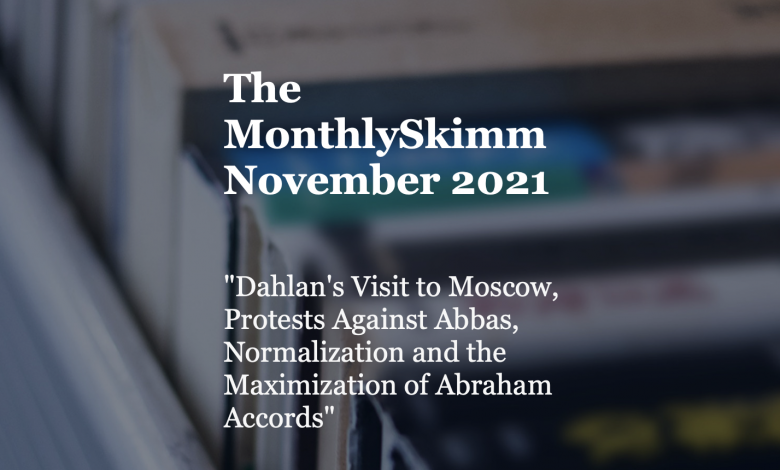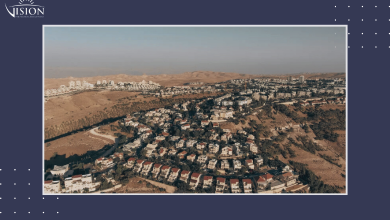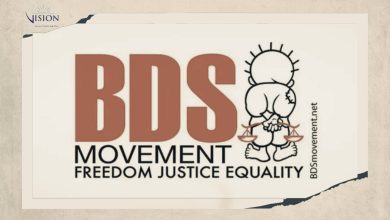The MonthlySkimm: November 2021
"Dahlan's Visit to Moscow, Protests Against Abbas, Normalization and the Maximization of Abraham Accords"

Mohammed Hasan
Beyond Dahlan’s Visit to Moscow
According to Pinhas Inbari’s article “Tension in the Fatah Camp: Russia Received Mahmoud Abbas’ Greatest Foe, Mohammed Dahlan,” Dahlan’s official meeting with Russian foreign minister Sergey Lavrov in Moscow asserted his position as a representative leader and served to impose tensions in Fatah’s camp (Inbari, 2021). Russia is a cornerstone of Mahmud Abbas’s policy, effectively rendering Dahlan and his visit to Moscow a threat to Abbas worth serious deliberation. Interestingly, Inbari believes that if Russia shifts towards Dahlan, a consensus among global and regional Arab powers would be required to end Mahmud Abbas’ political career.
The Maximization of Abraham Accords’ Influences
Yoel Guzansky and Sarah Feuer have provided significant recommendations that maximize the strategic influence of the Abraham Accords (Guzansky, 2021). In “Abraham Accords at One Year: Achievements, Challenges, and Recommendations for Israel,” published on INSS pages, they recommend that Israel should;
- Concentrate economic initiatives on improving conditions for younger generations.
- Focus more on improving its image in the eyes of the following generations of leaders of Arab regimes.
- Integrate Jordan and Egypt in the Arab-Israeli normalization process.
- Involve Israeli Arabs to develop relations with potential Arab partners.
- Have the USA widen opportunities to include other Muslim and Arab countries in the normalization process.
Integrating the Old Arab Normalizer Into The New Wave of Normalization
Beyond the pragmatic accomplishments of the trilateral agreement between Israel, Jordan, and the UAE, Gaith al-Omari and Henderson emphasize that the deal represents a model for integrating the previous generation of normalizers, Jordan and Egypt, with the newer signatories of the Abraham Accords (al-Omari, 2021) Moreover, such an agreement would break the “cold peace” between Jordan and Israel, considering the disagreement between both parties over Jerusalem. It also represents a dynamic that increases the chances of US diplomacy to advance a much more cooperative Middle East in a way that is compatible with the American vision of the region.
Reforms on Palestinian Working Permits
The Israeli government prevents the illegal exploitation of Palestinians employed in Israel (Adnan, 2021). This policy aims to uphold stability in the West Bank and fight the shadow economy in the country. The new March 2020 reforms regarding working permit laws were applied in order to eradicate illegal permit trade to empower workers’ bargaining power. Wifag Adnan and Haggay Etkes recommend that the Israeli government further develop the app matching workers and employers without brokers.
How Can Israel Adapt its Policies to Widen the Gap with the USA?
Historical harmonization between the US and Israel is questionable. In “The United States and Israel: Disagreements Could Threaten Relations,” Oded Eran and Shimon Stein emphasize that Israel needs to show more flexibility and update the files causing friction between both sides (Eran, 2021). These fundamental issues are revealed in the Israeli-Palestinian conflict, the Iranian nuclear program, and in relations with China. Israel should reconsider its ties with China with regards to the Chinese file, particularly economic and military cooperation such as the early warning aircrafts deal. Furthermore, the way the Israeli government approaches the conflict is causing further friction, as Israeli policies are killing the possibility of a two-state solution. Finally, Israel must reconsider its policies in light of significant changes in the international arena and the changes in American opinion and demographics.
How to Minimize the Potential Effects of Taliban Presence in the Region
The Taliban takeover in Afghanistan will not be limited to Afghan soil. Events in Afghanistan are perceived globally as a form of Jihadist penetration where Jihadist groups are inspired and fed similar ideologies. In a discussion organized by Wilson Centre under the title “Hindsight Up Front: Implications of Afghanistan Withdrawal for the Middle East,” the participants concluded that current events are seen as an indicator that the US would no longer be a reliable regional ally in the long run. To minimize the Taliban’s potential effects on the region, notwithstanding Palestinian organizations such as Hamas and Islamic Jihad, a counterforce represented by the Civil Society in the area should be enforced (Center, 2021).
Reference:
Center, W. (2021). Hindsight Up Front: Implications of Afghanistan Withdrawal for the Middle East. From Wilson Center: https://www.wilsoncenter.org/event/hindsight-front-implications-afghanistan-withdrawal-middle-east
al-Omari, G. (2021). UAE to Fund Israel and Jordan’s Solar/Water Deal. From The Washington Institute : https://www.washingtoninstitute.org/policy-analysis/uae-fund-israel-and-jordans-solarwater-deal
Eran, O. (2021). The United States and Israel: Disagreements Could Threaten Relations. From The Institute for National Security Studies : https://www.inss.org.il/publication/usa-israel-differences/
Adnan, W. (2021). The Reform of the Permit Regime for Palestinian Workers in Israel: A Preliminary Evaluation. From The Institute for Natonal Security Studies: https://www.inss.org.il/publication/work-permits-reform/
Guzansky, Y. (2021). The Abraham Accords at One Year: Achievements, Challenges, and Recommendations for Israel. From The Institute For National Security Studies: https://www.inss.org.il/publication/abraham-accords-one-year-insights/
Inbari, P. (2021). Tension in the Fatah Camp: Russia Received Mahmoud Abbas’ Greatest Foe, Mohammed Dahlan. From Jerusalem Center for Public Affairs: https://jcpa.org/tension-in-the-fatah-camp-russia-received-mahmoud-abbas-greatest-foe-mohammed-dahlan/





